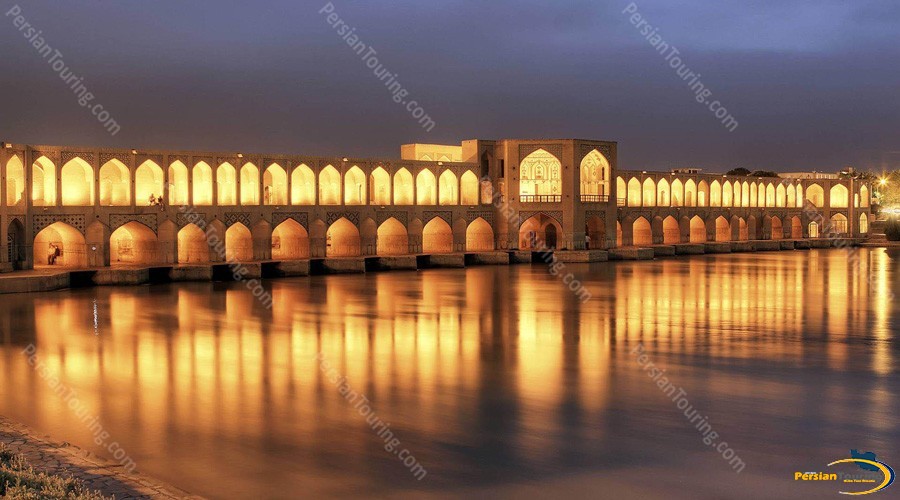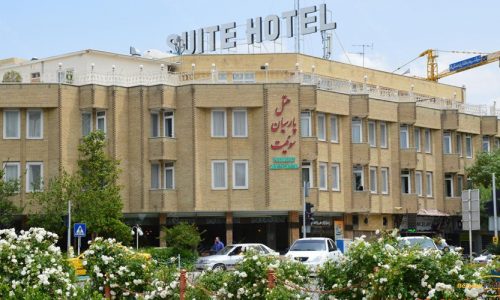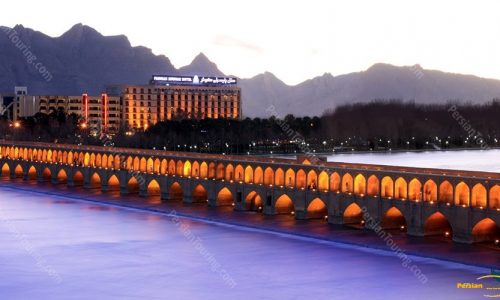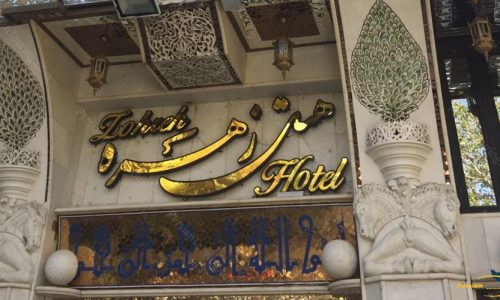Khaju Bridge
Khaju Bridge is a bridge in the province of Isfahan, Iran, which has been described as the finest in the province. It was built by the Persian Safavid king, Shah Abbas II around 1650, on the foundations of an older bridge. Serving as both a bridge and a dam (or a weir), it links the Khaju quarter on the north bank with the Zoroastrian quarter across the Zayandeh River. Although architecturally functioning as a bridge and a weir, it also served a primary function as a building and a place for public meetings.
This structure was originally decorated with artistic tile work and paintings and served as a teahouse. In the center of the structure, a pavilion exists inside which Shah Abbas would have once sat, admiring the view. Today, remnants of a stone seat are all that is left of the king’s chair.
This bridge is one of the finest examples of Persian architecture at the height of Safavid cultural influence in Iran. In words of Upham Pope and Jean Chardin, Khaju bridge is “the culminating monument of Persian bridge architecture and one of the most interesting bridges extant…where the whole has rhythm and dignity and combines in the happiest consistency, utility, beauty, and recreation.
Khaju Bridge has 23 arches and is 133 meters long and 12 meters wide. The pass way of the bridge is 7.5 meters wide, made of bricks and stones with 21 larger and 26 smaller inlet and outlet channels. The pieces of stone used in this bridge are over 2 meters long and the distance between every channel and the ceiling base is 21 meters. The existing inscriptions suggest that the bridge was repaired in 1873.
Top Hotels near to Khaju Bridge
Top Tours You Can Visit Khaju Bridge
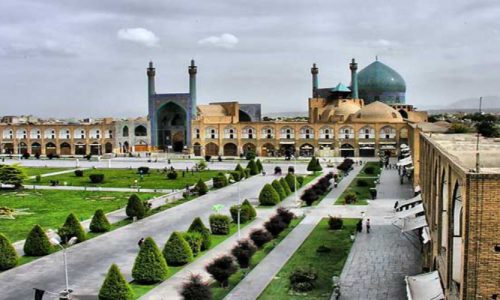
ペルシャの不思議

Culture and History of Iran



